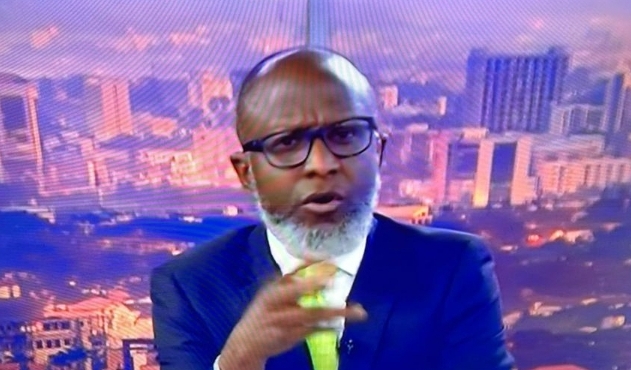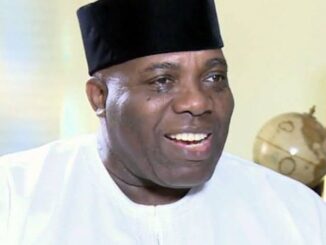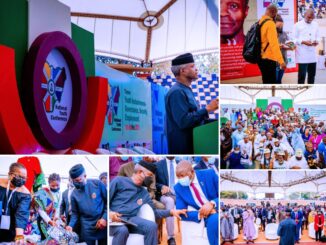
By Oluwafemi Popoola
Seasoned journalist and former presidential aide, Laolu Akande, has urged President Bola Ahmed Tinubu-led government to reconsider and implement the 2007 Justice Uwais Electoral Reform Report to improve the electoral process in the country.
Akande made this call on Monday, November 20, 2023, as he made his official debut as a Channels TV political analyst having previously served as a media aide to the former Vice President, Prof Yemi Osinbajo, SAN, under President Mohammodu Buhari administration from 2015 to 2023.
The veteran journalist, in his new role as Channels TV political analyst, noted that most of the technicalities and challenges that have marred the country’s electoral process have been highlighted and addressed in the report.
Recall that on August 28, 2007, late President Umaru Musa Yar’ Adua instituted a 22-member Electoral Review Committee, headed by Justice Uwais, to critically examine the electoral process and advise on areas that require reforms.
In its assignment of over one year, the committee received over 1,000 memoranda from the general public, while experts from Botswana, Cameroon, Canada, Cote D’Ivoire, France, Ghana, India, Lesotho, Mexico, Niger Republic and South Africa, were invited to make inputs.
On completion, the Uwais Committee submitted its report to the late President but successive governments have, up till now, overlooked most of its recommendations with no implementation whatsoever.
Akande, however, while examining some of the issues arising from the just concluded off-cycle elections in the country and the accompanying drama and abnormalities, said the Federal Government may need to revisit the Uwais Report, using it as a guide to drive electoral reforms in the country.
His words, “The first thing we have to do is to take a good look at the Uwais Report. Looking at the report again is going to be helpful because many of the things we are still dealing with have been highlighted in the report. For instance, the report stated clearly that there must be an end to all litigated issues arising from the election before elected officials are sworn in.”
ALSO READ: Elected officials are in office to serve not for perks — Laolu Akande
Continuing, “For some reason that recommendation was not accepted. Now If that were to be accepted, that will make sure the role of the judiciary in part will be limited. What we have today is that the judiciary is playing too much of a role in our electoral system. Something that Uwais Panel Report had also warned won’t be good for the system. It won’t confer credibility on the process if you have the judiciary determining the outcome of an election.
“Today I was reading an article written by Lasisi Olagunju, where he said that the Nigerian Judiciary has, in fact, become our Electoral College because you see the overly participation or involvement of the judiciary in the election process. That has to be dealt with,” Akande said.
Commenting on the recent off-cycle elections in Kogi and other states, Akande condemned the alleged electoral abnormalities witnessed in the elections and raised alarms over increasing political apathy in the country.
He said, “The first one will be in my view, the level of voter apathy in the country. Not much has been said about this. And of course, it is even worse for this kind of off-season election. Compare this to a place like Kenya, where you have about 50 to 60 per cent turnout. What we had even in the Presidential and National Assembly elections was about 20 per cent which is even below that. That is one of the major things we need to be looking out for.”
Akande added, “Now having said that there is also the problem of the violence, the intimidation and all related kinds of stuff. A situation for instance, in Kogi State, where election results were written ahead of even the time of voting.”
“What all of these point to is there is an increasing level of impunity when we talk about electoral offences. I remember that in 2008, when the Uwais Report was released, the report said that at that time since 1960, there hadn’t been any conviction of electoral offences. I don’t know whether between 2008 and now, we’ve had any significant change of that, but that itself is a big problem and so because of the impunity that we see in the electoral terrain,” Akande concluded.




